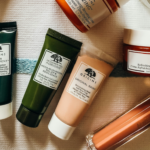Gen Z is a generation of diverse interests and habits. CivicScience data show many Gen Z adults are concerned about their overall health and well-being – from prioritizing fitness, to improving financial wellness, to using teletherapy services. At the same time, data also show they are a generation dealing with high levels of stress and anxiety.
In addition to these Gen Z health and wellness trends, what are some lesser-known things Gen Z adults do that could fall into the category of ‘self-care’? Here are three quick trends:
They’re Pro Using Mindfulness Meditation Apps
Gen Zers are the biggest adopters of using apps and technology to find their zen mode. About 1-in-5 have used apps such as “Calm” and “Headspace,” which offer guided daily meditation practice. Of course, they aren’t for everyone and just as many have tried the apps and disliked them. However, an additional 23% of Gen Z adults say they plan to give the apps a go.
They’re More Likely to Be Pet Parents
“Emotional support animals” may be more associated with Millennials, but spending time with pets can serve as a form of self-care for people of all ages by boosting well-being, especially in difficult times. It’s no surprise that more people adopted pets over the course of the pandemic. In a recent poll, Gen Zers were the most likely to say they became new pet parents during the pandemic and today nearly 3-in-4 report they are pet owners.
They Aren’t Opposed to Treating No.1
Gen Zers love to splurge on themselves. This can’t solely be chalked up to life stage – comparative CivicScience data revealed that 18- to 24-year-olds today are more likely to splurge on themselves than 18- to 24-year-olds in 2017. Recent poll results show that Gen Zers are most fond of treating themselves to nice meals, a clothing shopping spree, and a spa or salon day. Ten percent like to indulge in shopping for luxury designer products. Jewelry and top-shelf liquor are further down on the list of splurge-able items.
Self-care can come in many different forms and is a subjective and personal experience, as in what works for one person may not work for another. Despite reporting lower overall well-being, the data suggest that Gen Z is a generation attuned to thinking about well-being and making efforts to improve it – whether that’s through exercise, talk therapy, practicing mindfulness meditation, or taking a spa day.
How much is life stage and how much is due to cultural shift? Stay tuned as we continue to uncover more unexpected Gen Z insights. Or, contact us for an InsightStore demo.








